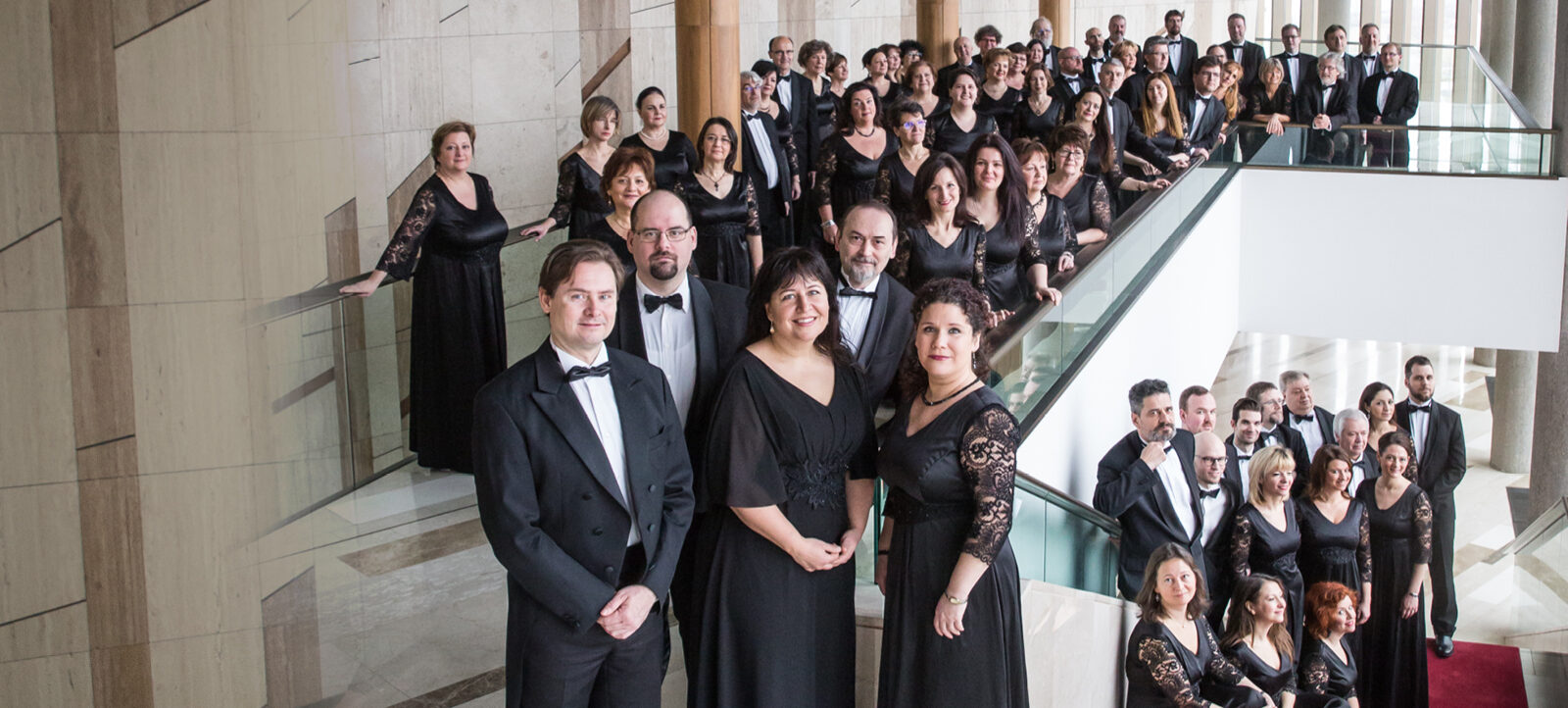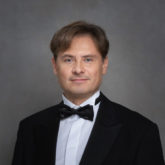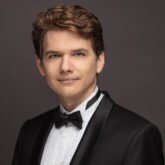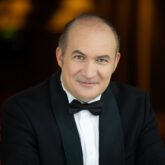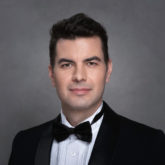Our history
The Hungarian National Choir was founded in 1985, as the Hungarian State Choir, under the leadership of composer/choirmaster Miklós Pászti. The first great era in the ensemble’s history began in 1990, when the founding choirmaster’s death led to Mátyas Antal taking up the post, which he held until 31 March 2016. Over the course of that more than a quarter of a century, the ensemble became Hungary’s leading professional choir, known for its performances of vocal compositions accompanied by orchestra, oratorios and a cappella works.
Accordingly, its repertoire is extremely rich and open in every direction, encompassing the early Baroque composer Heinrich Schütz, Bach, the Viennese Classical School, and the composers of the 19th and 20th centuries and of today, without prejudice to genre.
Csaba Somos has served as the ensemble’s choirmaster since 1 January 2016.
In addition to performing concerts in Hungary, the ensemble regularly accepts invitations to appear abroad, having sung in numerous nations in Europe, as well as in Israel and Japan. They also regularly visit communities with ethnic Hungarian populations in the countries that neighbour Hungary.
The Hungarian National Choir places great emphasis on performing contemporary works, along with the 19th-century oratorios that are so prominent in their repertoire. They have been credited with numerous world and Hungarian premières, including those of Zoltán Jeney’s oratorio Funeral Rite and György Kurtág’s composition Songs of Despair and Sorrow – the latter of which is considered by many to be one of the most difficult pieces in the choral literature. However, their repertoire also extends to works by Tamás Beischer-Matyó, Zsolt Durkó, Kamilló Lendvay, György Ligeti, György Orbán, Emil Petrovics, József Soproni, Sándor Szokolay, Péter Tóth and János Vajda. In conjunction with this, the ensemble have also sung on recordings of works by several contemporary composers, such as Lajos Huszár, Miklós Csemiczky, Attila Bozay, László Király, Máté Hollós and József Sári.
The choir regularly collaborates on the Hungarian National Philharmonic’s summer Beethoven series in Martonvásár and plays a prominent role in the orchestra’s family matinee concert series, as well as in the Bartók New Series that first began development in 2006 under the artistic leadership of Zoltán Kocsis. The Hungarian National Choir is also a reliable partner to the Hungarian National Philharmonic Orchestra in its artistic efforts to bring works that are undeservedly absent from the established repertoire to the audience. This category includes compositions by Britten, Debussy, Enescu, Janáček and Ravel. Not only did the choir serve as the chorus in the Hungarian National Philharmonic’s highly acclaimed series of productions of the operas of Richard Strauss, several of its members also took the stage as soloists. Another of the choir’s notable accomplishments of recent years was its participation in the production of Schoenberg’s Moses und Aron that was conducted by Kocsis, who also completed the score. In addition to performing the traditional oratorio repertoire, they have also sung in such important but rarely heard works as the immense choral symphonies of Mahler, Bruckner’s Te Deum and Liszt’s Christus oratorio and The Legend of St. Elizabeth. The Hungarian National Choir is also regularly invited to participate in the massive Budapest Wagner Days festival that is organised at Müpa Budapest each year.
Over the past 30 years, the choir has worked with such excellent conductors as Antal Doráti, Péter Eötvös, Ádám Fischer, Lionel Friend, János Fürst, Lamberto Gardelli, Zsolt Hamar, Sebastian Weigle, János Kovács, György Lehel, András Ligeti, Ervin Lukács, Ken-Ichiro Kobayashi, Bertrand de Billy, Rico Saccani, Yuri Simonov, Carlo Montanaro, Krzysztof Penderecki, Tamás Vásáry and Zoltán Kocsis.


